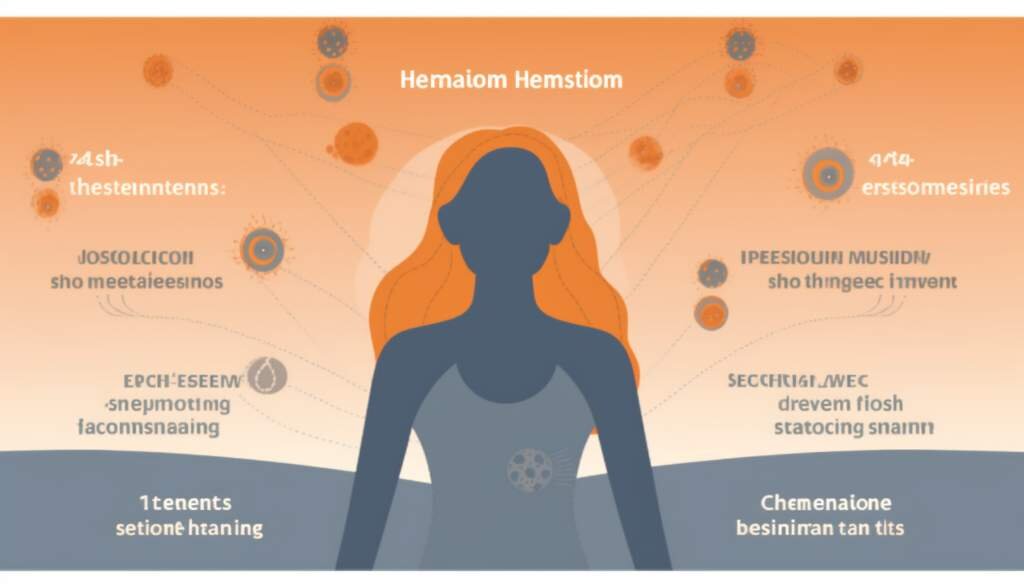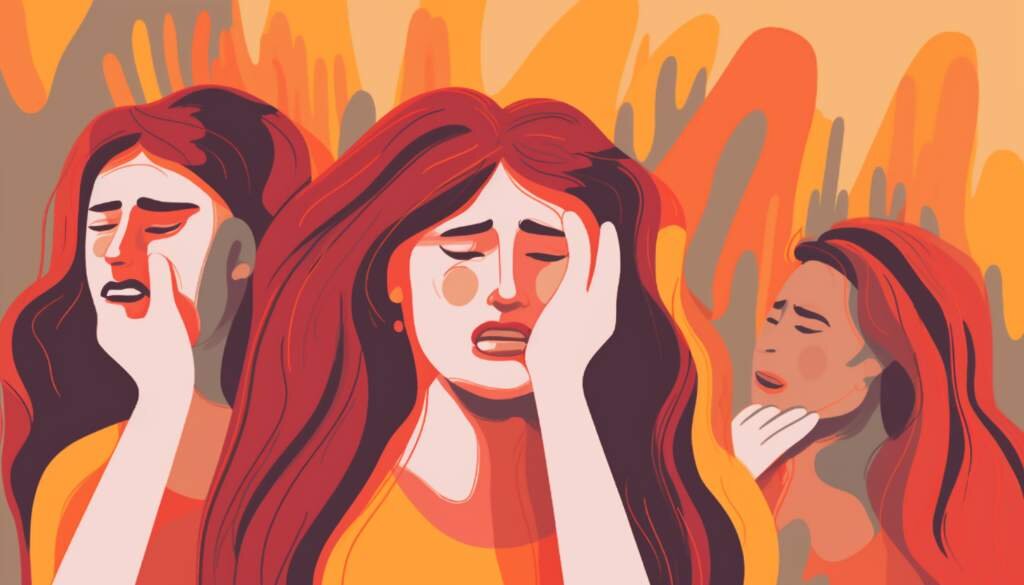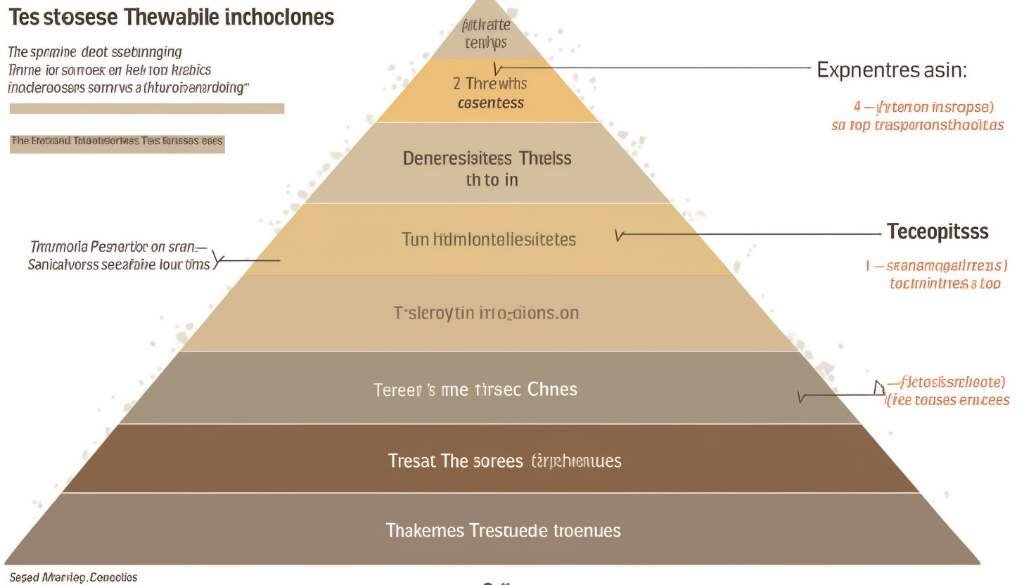
Introduction
Testosterone is a crucial hormone that plays a vital role in the functioning of the human body. It is particularly important for men, as it is responsible for numerous functions such as muscle growth, bone density, and the production of red blood cells. However, testosterone levels can be influenced by various factors, including stress.
In this article, we will explore the relationship between stress and testosterone levels. We will discuss how stress affects testosterone, both in the short term and in the long term. Additionally, we will delve into the different factors that can influence testosterone levels and stress, such as age, gender, health conditions, and lifestyle factors.
Furthermore, we will provide insights on how to manage stress effectively to optimize testosterone levels. We will introduce stress reduction techniques that can help individuals cope with and reduce stress levels. Additionally, we will highlight the role of exercise in reducing stress and boosting testosterone. Lastly, we will emphasize the importance of maintaining a healthy lifestyle to achieve hormonal balance.
By the end of this article, you will have a better understanding of the impact of stress on testosterone levels and how to manage stress to optimize testosterone production. So let's dive in and explore the fascinating relationship between stress and testosterone!

Understanding Testosterone
Testosterone plays a crucial role in the functioning of the human body, particularly in males. Understanding testosterone is essential for comprehending its impact on various aspects of our health and well-being.
Testosterone is a hormone primarily found in males, although it is also present, in smaller amounts, in females. It is responsible for the development of male reproductive tissues, including the testes and prostate, as well as promoting secondary sexual characteristics such as muscle mass, bone density, and body hair.
In the following sections, we will explore the intricate relationship between testosterone and stress, the factors that can influence testosterone levels, and effective strategies for managing stress to optimize testosterone levels.
What is testosterone?
Testosterone is a hormone that plays a crucial role in the human body, particularly in men. It belongs to a class of hormones called androgens, which are responsible for the development and maintenance of male characteristics. Testosterone is primarily produced in the testicles in men and in smaller amounts in the ovaries and adrenal glands in women.
One of the main functions of testosterone is to promote the growth and development of male sexual organs, such as the penis, testicles, and prostate. It also plays a vital role in regulating sexual desire and function, as well as sperm production. In addition to its reproductive functions, testosterone also contributes to the development of secondary sexual characteristics, such as facial and body hair, muscle mass, and bone density.
Testosterone is not exclusive to men, as women also have small amounts of this hormone in their bodies. In women, testosterone is produced in the ovaries and adrenal glands and is essential for maintaining overall health and well-being.
Testosterone levels are influenced by various factors, including age, gender, health conditions, and lifestyle. As individuals age, testosterone production naturally declines. Menopause in women also leads to a decrease in testosterone levels.
It is important to note that testosterone levels can vary widely from person to person, and what may be considered a normal level for one individual may be different for another. If you suspect low testosterone levels or have any concerns, it is advisable to consult with a healthcare professional who can conduct tests and provide appropriate guidance and treatment if necessary.
The role of testosterone in the body
Testosterone is a hormone that plays a crucial role in the body, particularly in men. It is often associated with sexual development and functions, but its influence extends beyond that. Testosterone is produced mainly in the testicles in men and in smaller amounts in the ovaries and adrenal glands in women. However, men produce significantly higher levels than women, which contributes to the development of male characteristics.
One of the primary functions of testosterone is to regulate the growth and development of male reproductive tissues, including the testes and prostate. It is responsible for the production of sperm, the maturation of the sex organs, and the development of secondary sexual characteristics, such as facial and body hair, deepening of the voice, and muscle mass.
Besides its role in sexual development, testosterone also plays a crucial role in maintaining overall health and well-being. It helps regulate bone density, fat distribution, and muscle mass. Testosterone is involved in the production of red blood cells and contributes to cognitive function, mood regulation, and energy levels.
Testosterone levels naturally decline with age, typically starting in the late 20s or early 30s. This decline can result in various symptoms, including reduced sex drive, fatigue, decreased muscle mass, and mood changes. However, low testosterone levels can be influenced by factors other than aging, such as stress, health conditions, and lifestyle choices.
Understanding the role of testosterone in the body is important for both men and women. It helps to recognize the significance of maintaining optimal testosterone levels for overall health, vitality, and quality of life.

The Impact of Stress on Testosterone Levels
Stress can have a significant impact on testosterone levels in the body. Testosterone is a vital hormone that plays several essential roles, including the development of reproductive tissues and stimulating the production of sperm in males. It also promotes muscle and bone mass, influences mood, and supports overall well-being.
When we experience stress, our body goes into a fight-or-flight response, triggering the release of stress hormones such as cortisol. Unfortunately, elevated cortisol levels can interfere with testosterone production, leading to imbalances in hormone levels.
In this section, we will explore how stress affects testosterone levels and the relationship between chronic and acute stress and testosterone. We will also delve into key factors that influence testosterone and stress, such as age, gender, health conditions, and lifestyle factors.
By understanding the impact of stress on testosterone levels, we can gain insights into the importance of managing stress effectively to optimize hormonal balance. We will discuss stress reduction techniques, the role of exercise in reducing stress and boosting testosterone, and the significance of a healthy lifestyle in maintaining optimal hormone levels.
How stress affects testosterone levels
Stress has been found to have a significant impact on testosterone levels in the body. When a person experiences stress, the body releases a hormone called cortisol, which is associated with the fight-or-flight response. Cortisol plays an important role in regulating stress and maintaining homeostasis in the body. However, chronic stress can lead to elevated cortisol levels, which can have negative effects on testosterone production.
One way in which stress affects testosterone levels is by inhibiting the release of luteinizing hormone (LH) from the pituitary gland. LH is responsible for signaling the testes to produce testosterone. When cortisol levels are high due to stress, LH release may be suppressed, leading to lower testosterone levels. Additionally, stress can also affect the production of other hormones involved in testosterone synthesis, such as follicle-stimulating hormone (FSH).
Research has shown that chronic stress is particularly detrimental to testosterone levels. People who experience ongoing, long-term stress are more likely to have lower testosterone levels compared to those with minimal stress. This is because chronic stress disrupts the delicate balance of hormones in the body, leading to decreased testosterone production.
In addition to chronic stress, acute stress can also affect testosterone levels. Short-term stressors, such as high-intensity exercise or a challenging work task, can temporarily increase testosterone levels. This is due to the body's immediate response to stress, which includes the release of hormones such as adrenaline and cortisol. However, prolonged exposure to acute stress can eventually lead to a decrease in testosterone levels.
The relationship between chronic stress and testosterone
Chronic stress can have a significant impact on testosterone levels in the body. When stress becomes chronic, the body enters a state of prolonged activation of the stress response, which can have negative effects on hormone production and balance.
One of the key ways chronic stress affects testosterone levels is through the hypothalamic-pituitary-adrenal (HPA) axis. This is a complex system that controls the release of hormones, including testosterone. When the body is under chronic stress, the HPA axis becomes dysregulated, leading to decreased testosterone production.
Chronic stress can also increase the production of the stress hormone cortisol. Cortisol is released by the adrenal glands in response to stress and helps the body cope with the demands of the situation. However, when cortisol levels are consistently elevated due to chronic stress, it can interfere with testosterone production. High cortisol levels can inhibit the release of luteinizing hormone (LH) and follicle-stimulating hormone (FSH), which are necessary for testosterone production.
Furthermore, chronic stress can lead to lifestyle factors that further impact testosterone levels. For example, individuals experiencing chronic stress may adopt unhealthy coping mechanisms such as smoking, excessive alcohol consumption, or poor diet, all of which can contribute to decreased testosterone levels. Additionally, chronic stress can lead to sleep disturbances, which are also associated with lower testosterone levels.
It is important to address chronic stress and its impact on testosterone levels. Finding effective stress management techniques is crucial for maintaining hormonal balance. This can include engaging in relaxation exercises such as deep breathing, meditation, or yoga. Regular exercise has also been shown to reduce stress levels and increase testosterone production. A healthy lifestyle that includes a balanced diet, adequate sleep, and avoiding harmful habits can also support hormonal health.
In conclusion, chronic stress can negatively affect testosterone levels by dysregulating the HPA axis, increasing cortisol levels, and leading to unhealthy lifestyle choices. By managing stress and adopting a healthier lifestyle, individuals can optimize testosterone levels and support overall well-being.
The effects of acute stress on testosterone
Acute stress refers to short-term stressors that have an immediate impact on the body. When faced with acute stress, the body releases stress hormones, such as cortisol and adrenaline, as part of the fight-or-flight response. This surge in stress hormones can temporarily suppress testosterone production.
One of the main ways that acute stress affects testosterone is by influencing the hypothalamic-pituitary-gonadal (HPG) axis, which regulates testosterone production. Acute stress can disrupt the HPG axis function, leading to a decrease in testosterone levels.
Research has shown that acute stress can also impair the function of Leydig cells in the testes, which are responsible for testosterone synthesis. This can further contribute to decreased testosterone levels.
In addition to affecting testosterone production, acute stress can also impact testosterone utilization and metabolism in the body. Stress hormones can interfere with the binding of testosterone to its receptors, reducing its effectiveness. Furthermore, acute stress can increase the activity of enzymes that convert testosterone into other hormones, such as estrogen, further compromising hormonal balance.
It's important to note that the effects of acute stress on testosterone are typically temporary. Once the stressor has passed and the body returns to a state of homeostasis, testosterone levels usually normalize.

Factors That Influence Testosterone and Stress
Factors That Influence Testosterone and Stress are crucial elements to consider when understanding the relationship between testosterone levels and stress. These factors can have a significant impact on both testosterone production and how the body responds to stress.
In the upcoming sections, we will explore various factors that influence testosterone and stress, including age, gender, health conditions, and lifestyle factors. Understanding these elements is essential for managing stress and optimizing testosterone levels.
Age
Age is a significant factor that influences testosterone levels and stress in both men and women. As individuals age, their hormone levels naturally decline, including testosterone. Testosterone levels in men start to decrease gradually after the age of 30, and this decline continues as they get older. In women, testosterone levels also decline with age, particularly during perimenopause and menopause.
The decline in testosterone levels with age can have various effects on the body and overall well-being. Some common symptoms of low testosterone in aging individuals include decreased libido, fatigue, decreased muscle mass, increased body fat, and mood changes. Additionally, low testosterone levels can also contribute to increased stress and reduced resilience to stressors.
It is important to note that while age plays a role in lowering testosterone levels, other factors can exacerbate or mitigate this decline. Lifestyle choices, health conditions, and genetic factors can all influence testosterone levels and how age-related decline impacts an individual.
It is recommended that individuals experiencing symptoms of low testosterone consult with a healthcare professional who can accurately assess their hormone levels through blood tests. Based on the results, appropriate interventions, such as hormone replacement therapy, may be considered to optimize testosterone levels and manage related stress.
Gender
Gender plays a significant role in testosterone levels and stress. While testosterone is commonly associated with males, it is present in both males and females, albeit in different quantities. Testosterone is the primary male sex hormone responsible for the development of male reproductive and sexual characteristics. In males, testosterone is primarily produced in the testes, while females produce smaller amounts of testosterone in their ovaries and adrenal glands.
It is important to note that males generally have higher testosterone levels compared to females. On average, adult males have about 10 times more testosterone than adult females. This difference in testosterone levels between males and females can influence how stress affects individuals of each gender.
Research suggests that testosterone levels may decrease in response to stress in both males and females. However, the exact impact of stress on testosterone levels can vary between genders. In males, chronic stress has been shown to reduce testosterone levels over time. High levels of cortisol, the stress hormone, can suppress the production of testosterone. This can lead to decreased libido, decreased muscle mass, and a higher risk of developing depression or anxiety disorders.
Females, on the other hand, may experience a different relationship between stress and testosterone. Some studies suggest that acute stress may actually increase testosterone levels in females. This temporary testosterone boost can enhance cognitive function and improve response to stress in females. However, chronic stress in females can eventually lead to a decrease in testosterone levels, similar to what is observed in males.
It is worth noting that testosterone levels can also be influenced by other factors related to gender. For example, hormone fluctuations during the menstrual cycle in females can affect testosterone levels. Additionally, hormone replacement therapy, birth control pills, and certain medical conditions can also impact testosterone levels in both males and females.
It is essential for individuals of all genders to manage their stress levels effectively to maintain optimal testosterone levels. Stress reduction techniques, such as meditation, deep breathing exercises, and engaging in hobbies or activities that promote relaxation, can help minimize the impact of stress on testosterone levels.
In addition to stress reduction techniques, regular exercise has been shown to be beneficial for managing stress and boosting testosterone levels. Engaging in both aerobic exercise and strength training can help maintain hormonal balance and promote overall well-being.
Lastly, adopting a healthy lifestyle is crucial for optimizing testosterone levels. Eating a balanced diet, getting enough sleep, and avoiding excessive alcohol consumption and smoking can all contribute to hormonal balance and stress reduction.
In conclusion, gender plays a role in testosterone levels and how stress affects individuals. While testosterone is primarily associated with males, both males and females can experience changes in testosterone levels due to stress. It is important for individuals of all genders to manage stress effectively through various techniques and lead a healthy lifestyle to maintain optimal testosterone levels and overall well-being.
Health conditions
Health conditions can have a significant impact on testosterone levels and stress. Certain medical conditions can directly affect the production and regulation of testosterone in the body, leading to imbalances and increased stress levels.
One common health condition that can influence testosterone and stress is hypogonadism. This condition occurs when the testes don't produce enough testosterone, leading to low levels of the hormone. Hypogonadism can be caused by various factors such as genetic disorders, testicular injury, or certain chronic diseases. Having low testosterone levels can contribute to increased stress and anxiety, as testosterone plays a crucial role in regulating mood and emotional well-being.
Another health condition that can impact testosterone and stress is obesity. Research has shown that obesity is associated with lower testosterone levels. Excess body fat can lead to hormonal imbalances and increase the production of stress hormones such as cortisol. Elevated cortisol levels can further suppress testosterone production, creating a vicious cycle of stress and hormonal disruption.
Additionally, chronic illnesses like diabetes and cardiovascular disease can affect testosterone levels and increase stress. These conditions often involve inflammation and oxidative stress, which can negatively impact testosterone production. Furthermore, the stress of managing a chronic illness can also contribute to higher stress levels, further exacerbating the hormonal imbalance.
It's important to note that while certain health conditions can influence testosterone and stress levels, lifestyle modifications and medical interventions can help manage these imbalances. Consultation with a healthcare professional is recommended to diagnose and treat any underlying health conditions and develop an appropriate treatment plan.
Lifestyle factors
When it comes to testosterone levels and stress, lifestyle factors play a significant role. These factors can either contribute to an increase in stress and a decrease in testosterone, or they can help manage stress and optimize testosterone levels. Here are some lifestyle factors that influence testosterone and stress:
- Diet: A healthy and balanced diet is crucial for maintaining optimal testosterone levels. Nutrient-dense foods such as whole grains, fruits, vegetables, lean proteins, and healthy fats can support the production of testosterone. On the other hand, a diet high in processed foods, sugary snacks, and unhealthy fats can lead to weight gain, inflammation, and hormonal imbalances.
- Sleep: Sufficient and quality sleep is essential for hormonal balance, including testosterone. Lack of sleep or poor sleep quality can increase stress levels and disrupt the normal production of testosterone. Aim for 7-9 hours of uninterrupted sleep per night to support testosterone production and reduce stress.
- Alcohol consumption: Excessive alcohol consumption can have a negative impact on testosterone levels. Studies have shown that chronic alcohol abuse can lead to decreased testosterone production and increased stress levels. It's important to limit alcohol intake and practice moderation to maintain healthy testosterone levels.
- Smoking: Smoking is known to have detrimental effects on overall health, including testosterone levels. Research has shown that smokers tend to have lower testosterone levels compared to non-smokers. Quitting smoking can help optimize testosterone levels and reduce stress.
- Physical activity: Regular exercise is beneficial for both managing stress and boosting testosterone levels. Engaging in resistance training, such as weightlifting, has been shown to increase testosterone production. Additionally, aerobic exercises like running or swimming can help reduce stress and improve overall well-being.
- Stress management techniques: Adopting healthy stress management techniques can have a positive impact on testosterone levels. Practices such as meditation, deep breathing exercises, yoga, and mindfulness can help reduce stress and promote hormonal balance.

Managing Stress to Optimize Testosterone Levels
Managing Stress to Optimize Testosterone Levels involves implementing strategies and techniques to reduce stress levels and promote hormonal balance. Stress can have a significant impact on testosterone levels, and by effectively managing stress, individuals can optimize their testosterone levels for better overall health and well-being.
In this section, we will explore various methods to manage stress and enhance testosterone levels. We will discuss stress reduction techniques, the role of exercise in reducing stress and boosting testosterone, and the importance of a healthy lifestyle for hormonal balance. By implementing these strategies, individuals can take control of their stress levels and optimize their testosterone levels to improve their overall quality of life.
Stress reduction techniques
Stress reduction techniques are essential for managing stress and optimizing testosterone levels. When you experience stress, your body produces cortisol, also known as the stress hormone. High levels of cortisol can negatively impact your testosterone production and overall hormonal balance. By incorporating stress reduction techniques into your daily routine, you can help lower cortisol levels and promote healthy testosterone levels. Here are some effective stress reduction techniques:
- 1. Deep Breathing: Deep breathing exercises, such as diaphragmatic breathing or belly breathing, can activate the relaxation response in your body. It helps calm your mind and reduce stress levels. Practice deep breathing for a few minutes each day to promote relaxation.
- 2. Meditation: Meditation is a powerful technique for reducing stress and promoting emotional well-being. It involves focusing your attention and eliminating the stream of thoughts that may be causing stress. Find a quiet place, sit comfortably, and meditate for a few minutes every day to reduce stress.
- 3. Mindfulness: Mindfulness involves paying attention to the present moment without judgment. By practicing mindfulness, you can become more aware of your stress triggers and develop a non-reactive mindset. Incorporate mindfulness into your daily routine by engaging in activities mindfully, such as eating, walking, or even washing dishes.
- 4. Exercise: Physical activity is not only beneficial for your physical health but also for your mental well-being. Regular exercise can reduce stress and boost your mood by increasing endorphin levels in the body. Aim for at least 30 minutes of moderate-intensity exercise, such as brisk walking or cycling, on most days of the week.
- 5. Yoga: Yoga combines physical postures, breathing techniques, and meditation to promote relaxation and reduce stress. It can help lower cortisol levels and improve overall hormonal balance. Consider joining a yoga class or following online tutorials to incorporate yoga into your routine.
- 6. Social Support: Building strong social connections and seeking support from loved ones can help reduce stress. Talking to someone you trust, sharing your feelings, and seeking advice or guidance can provide emotional relief and perspective. Make time for social activities and stay connected with friends and family.
- 7. Prioritizing Self-Care: Taking care of your physical, mental, and emotional well-being is crucial for managing stress. Prioritize self-care activities that help you relax and unwind, such as taking a bath, reading a book, listening to music, or engaging in hobbies you enjoy. Set aside dedicated time for self-care each day.
By incorporating these stress reduction techniques into your daily routine, you can effectively manage stress and promote healthy testosterone levels. Remember that finding a balance between work, personal life, and self-care is essential for overall well-being.
The role of exercise in reducing stress and boosting testosterone
Exercise plays a crucial role in reducing stress and boosting testosterone levels. Regular physical activity has been shown to have a positive impact on both mental and physical well-being, and can significantly contribute to managing stress and optimizing testosterone levels.
Engaging in exercise triggers the release of endorphins, which are often referred to as the body's natural feel-good chemicals. These endorphins help to reduce stress and promote a sense of well-being. By incorporating exercise into your daily routine, you can effectively combat the negative effects of stress and help improve your overall mood.
In addition to its stress-reducing effects, exercise also has the potential to boost testosterone levels. Testosterone is a hormone that plays a vital role in various bodily functions, including muscle growth, bone density, and libido. Studies have shown that engaging in regular physical activity can help to increase testosterone levels, particularly in individuals who have low levels of the hormone.
One of the ways exercise can boost testosterone production is through its impact on body composition. Regular exercise, especially resistance training, can help to increase muscle mass while reducing body fat. This increase in muscle mass has been linked to higher testosterone levels, as muscle cells have a higher concentration of androgen receptors. These receptors bind with testosterone, allowing it to exert its effects on the body.
Furthermore, exercise has been shown to improve insulin sensitivity, which can also contribute to optimizing testosterone levels. High levels of insulin, often associated with a sedentary lifestyle and poor diet, can inhibit testosterone production. By engaging in regular exercise and maintaining a healthy lifestyle, you can improve insulin sensitivity, which may help to enhance testosterone production.
To maximize the stress-reducing and testosterone-boosting benefits of exercise, it is important to choose activities that you enjoy and that fit into your lifestyle. Whether it's going for a jog, lifting weights, practicing yoga, or participating in team sports, finding an exercise routine that you look forward to can help to release tension, reduce stress, and optimize testosterone levels.
The importance of a healthy lifestyle for hormonal balance
A healthy lifestyle plays a crucial role in maintaining hormonal balance, including optimal testosterone levels. When it comes to managing stress and optimizing testosterone levels, adopting a healthy lifestyle is essential. Here are some key aspects of a healthy lifestyle that can support hormonal balance:
- Diet: A nutritious diet is vital for overall health and hormone production. Include a variety of fruits, vegetables, whole grains, lean proteins, and healthy fats in your diet. Avoid processed foods, sugary snacks, and excessive alcohol consumption, as they can disrupt hormonal balance.
- Sleep: Adequate sleep is important for hormonal regulation. Make sure to get 7-9 hours of uninterrupted sleep each night. Create a bedtime routine, establish a comfortable sleep environment, and limit exposure to electronic devices before bed to improve sleep quality.
- Exercise: Regular physical activity has numerous benefits for hormone production and stress reduction. Engage in a combination of cardiovascular exercises and strength training to optimize testosterone levels. Aim for at least 150 minutes of moderate-intensity exercise per week.
- Stress Management: Chronic stress can disrupt hormonal balance, including testosterone production. Practice stress management techniques such as deep breathing exercises, meditation, yoga, or engaging in hobbies to reduce stress levels.
- Weight Management: Maintaining a healthy weight is important for hormonal balance. Obesity and excess body fat can lead to hormonal imbalances, including lower testosterone levels. Adopt a balanced diet and engage in regular physical activity to maintain a healthy weight.
- Avoidance of Harmful Substances: Certain substances can negatively impact hormonal balance. Limit or avoid smoking, recreational drug use, and excessive alcohol consumption. These substances can disrupt hormone production and cause imbalances.

Conclusion
In conclusion, testosterone plays a crucial role in the body, impacting various functions such as muscle mass, bone density, libido, and overall well-being. Stress has a significant impact on testosterone levels, with chronic stress leading to a decrease in testosterone production and acute stress causing temporary fluctuations.
Several factors influence testosterone and stress levels, including age, gender, health conditions, and lifestyle choices. Understanding and managing these factors are essential for optimizing testosterone levels and overall health.
To manage stress and optimize testosterone levels, it is important to employ stress reduction techniques such as mindfulness, deep breathing exercises, and adequate sleep. Additionally, regular exercise has been shown to reduce stress and boost testosterone production. A healthy lifestyle, including a balanced diet rich in nutrients, can also contribute to hormonal balance.
By adopting these strategies and making positive lifestyle choices, individuals can work towards maintaining optimal testosterone levels and overall well-being. However, it is always recommended to consult with a healthcare professional for personalized advice and guidance.








